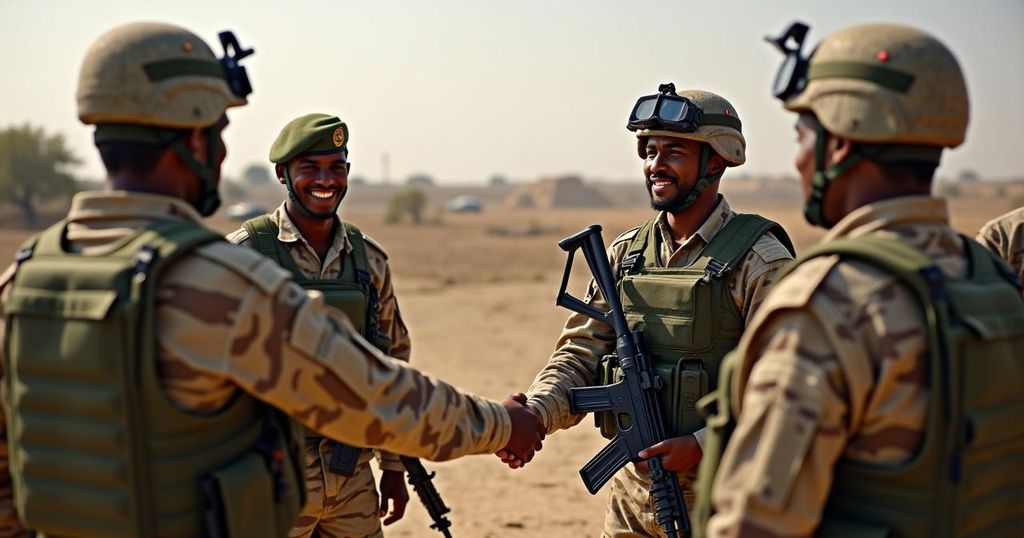Strengthening Regional Security: Somalia, Eritrea, and Egypt Unite Against Terrorism

In a recent summit, the leaders of Somalia, Eritrea, and Egypt agreed to enhance security cooperation in response to al-Shabab terrorism and regional instability. They emphasized the importance of sovereignty and non-interference among countries in the Horn of Africa, highlighting their commitment to combating terrorism together.
The leaders of Somalia, Eritrea, and Egypt convened in Asmara, Eritrea, to enhance security collaboration amid escalating tensions in the Horn of Africa. This three-way summit, initiated by Eritrean President Isaias Afwerki, included Egyptian President Abdel Fattah al-Sisi and Somalia’s President Hassan Sheikh Mohamud. They reached a consensus to fortify their ties with the aim of promoting regional stability as Somalia confronts the al-Shabab militant group. In an official statement from the Eritrean information ministry, the leaders emphasized their commitment to ensuring respect for the sovereignty and territorial integrity of their nations. They underscored the need to counter external interference in regional affairs and to coordinate efforts aimed at fostering joint and sustainable development. With regard to the security landscape in Somalia, which is actively combating al-Shabab, the leaders agreed to strengthen their cooperation against terrorism in all its facets. They also focused on safeguarding Somalia’s land and maritime borders amid ongoing conflicts. This security agreement may provoke concerns in Ethiopia, which maintains a substantial military presence in Somalia to combat al-Qaeda-linked factions. Ethiopia’s relations with Mogadishu have soured over planned developments in Somalia’s unrecognized breakaway region, Somaliland. In reaction to Ethiopia’s initiatives, Somalia has recently solidified a military alliance with Egypt, which has pledged to support a new African Union mission targeting al-Shabab. Moreover, Egypt and Ethiopia have been embroiled in disputes over the latter’s construction of a significant hydroelectric dam on the Nile River. Although Eritrea has previously aligned militarily with Ethiopia against Tigrayan forces, relations between these nations remain complex and strained. Despite these issues, an Ethiopian Foreign Ministry spokesperson recently described the bonds with Eritrea as “peaceful” and characterized their relations as one of “good neighbourliness and good friendship.”
The geopolitical climate in the Horn of Africa is characterized by complex interrelations, particularly among Somalia, Eritrea, and Egypt. Somalia has been embroiled in conflict with the al-Shabab militant group, which necessitates robust security measures and collaboration among regional powers. Eritrea and Egypt’s involvement in enhancing security ties with Somalia reflects broader regional dynamics, including mutual concerns over terrorism and sovereignty rights. Furthermore, the historical tensions between Ethiopia, Egypt, and Eritrea over resources, such as the Nile River and military alliances, complicate the security landscape and governance in the region. These relationships are key in understanding regional stability and the fight against militant groups like al-Shabab.
The summit between the leaders of Somalia, Eritrea, and Egypt marks a significant step toward strengthening regional security cooperation in the Horn of Africa. As Somalia continues its battle against al-Shabab, the backing from Eritrea and Egypt signifies a unified front against terrorism. However, the implications of these alliances may heighten tensions with Ethiopia, which has its own strategic interests in the region. Ultimately, fostering respect for territorial integrity and collaborative development efforts will be vital for achieving long-term stability.
Original Source: www.aljazeera.com








